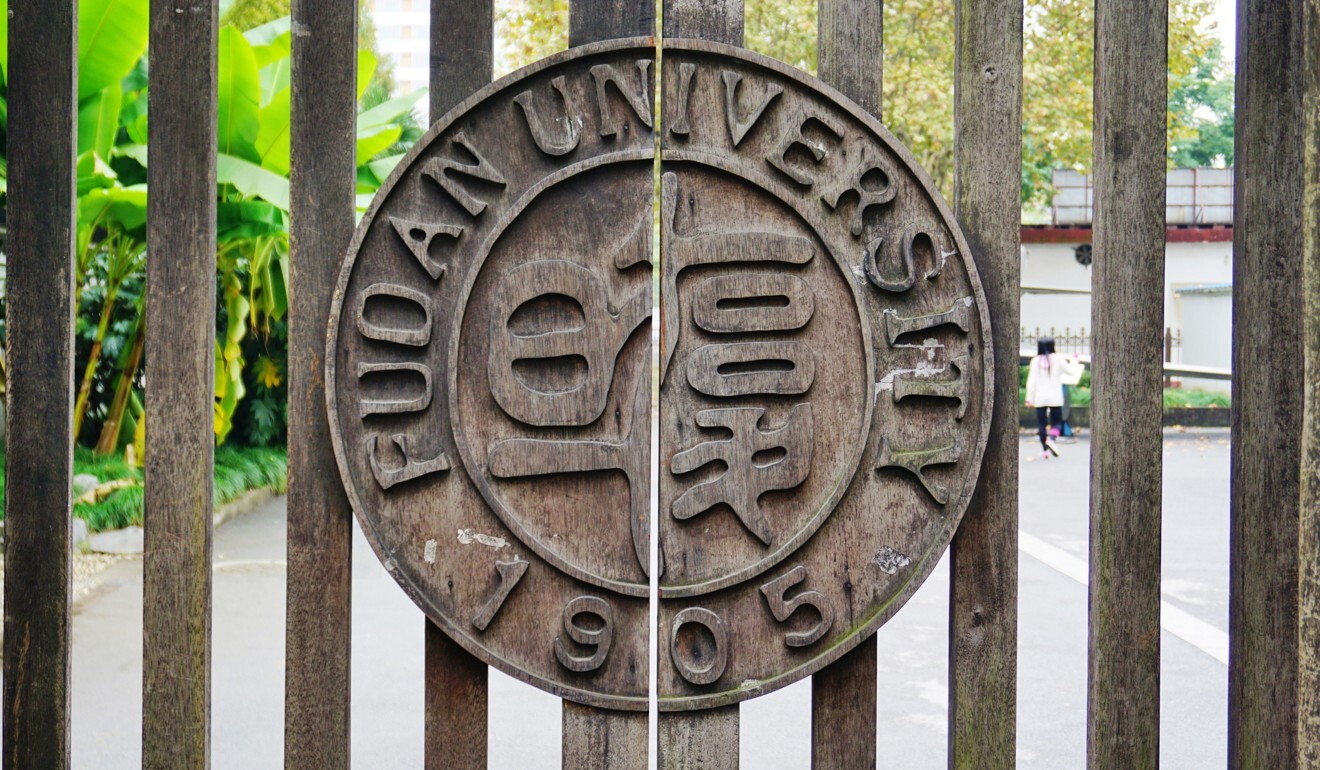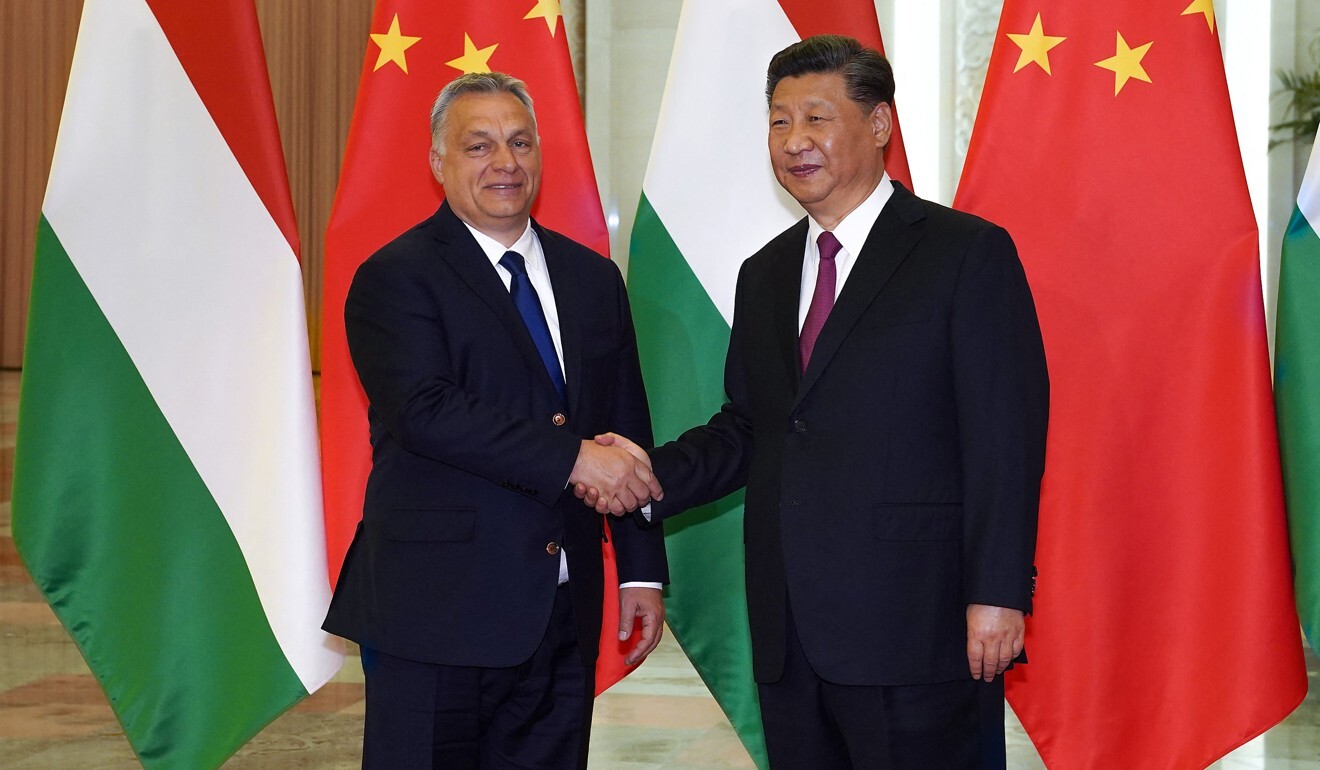
Hungary leader Viktor Orban’s China ties to become election issue, as outcry over Fudan University campus grows
- Plans to build a satellite campus for the Shanghai-based university in Budapest have prompted a backlash
- This week four streets in the city were renamed after figures such as the Dalai Lama to reflect human rights issues
Orban’s ties to Beijing have made global headlines for years. But a series of high profile political stunts by opponents and local media exposés into the financial reality of China’s interests in Budapest have begun to resonate among the electorate, according to political analysts and opinion polls.
“This is the first time that this relationship has become very polarising and politicised,” said Peter Kreko, director at Budapest’s Political Capital Institute. “This is really quite remarkable.”
The issue at the centre of the furore is Hungary’s plans to build a satellite campus for Shanghai’s Fudan University in the capital Budapest, at a cost of more than US$1.5 billion, using Chinese contractors and mainly funded by Chinese commercial loans.

The plan has lit a fire among Orban’s opponents, who plan to field a single candidate to face the strongman in elections to be held by next year.
Even supporters of Orban’s Fidesz party are lukewarm on the idea. A survey by the liberal Republikon Institute found that 31 per cent of Fidesz supporters are more inclined to oppose it.
China’s warm relations with Hungary ‘not intended to divide Europe’
There are now street signs in Budapest bearing the names “Free Hong Kong Road”, “Uygur Martyrs’ Road”, “Dalai Lama Road” and “Bishop Xie Shiguang Road”, referring to a Catholic bishop imprisoned by the Chinese government on multiple occasions.
Krisztina Baranyi, the mayor of the capital’s Ferencvaros district which contains the streets, told the South China Morning Post they were “permanent and official street names unless the government figures out some new rules” to intervene.
She said the changes had been made “because the government doesn’t really want to give us an opportunity to influence their decision” on Fudan University’s first European campus.
“We wanted to find some symbolic names that show clearly how far the Chinese regime and Chinese system is from our system and from the EU system on human rights issues,” said Baranyi, an independent.

“A few Hungarian politicians are trying to hype up China-related issues in order to grab attention and obstruct China-Hungary cooperation. This behaviour is contemptible,” said Wang Wenbin, a foreign ministry spokesman, at a Beijing press conference on Wednesday.
Opponents hope a rally set for Saturday in Budapest will demonstrate the scale of the anger towards the project. A Facebook event page shows that 5,000 plan to attend, with more than 15,000 “interested”, despite official restrictions on demonstrations due to the coronavirus pandemic.
One attendee will be Budapest mayor Gergely Karacsony, who is a favourite to win a September primary to select a candidate to run against Orban.
Will Germany whip Hungary into line on Hong Kong?
“I am deeply concerned about Fudan’s charter, according to which the university is ultimately serving the interests of the Chinese Communist Party. The size of the loan, and the complete lack of transparency surrounding the financial and construction details are also major concerns,” he told the Post.
In another high-profile move, Karacsony previously threatened to cancel the 2023 World Athletics Championships in Budapest over the plan to build the campus instead of affordable student housing.
“This is much more important for our city than hosting an international sports event,” he said.
Orban’s administration has vowed to stand by the project and to continue to align with China.

In April, Chinese leader Xi Jinping thanked Orban for “safeguarding the overall China-Europe relations”.
At this week’s Guiyang summit, Szijjarto hailed China’s growing trade and investment in Hungary, but economists suggest the reality falls short of the rhetoric.
United Nations statistics show China’s trade surplus with Hungary in 2020 was about US$6.7 billion.
Hungary to set up local campus for China’s Fudan University
“We have a huge growing trade deficit with China, which is of course a problem, but we don’t really talk about that because of the political commitment behind this relationship building between China and Hungary.
“There’s no economic footprint, at least not a significant economic footprint, of China in Hungary,” said Agnes Szunomar, a specialist in Sino-Hungarian commercial ties at the Institute of World Economics in Budapest, adding that the non-concessional nature of China’s loans to Hungary means there is no foreign direct investment involved.
According to the latest available OECD data, China accounts for just 2.6 per cent of all foreign direct investment in Hungary.
The government’s commandeering of large sections of the Hungarian media has helped to ensure these issues have not become politically problematic.
Political analysts say that, even before the Fudan situation, China would have been an election issue but the high profile of the project has guaranteed it.
“I think it will become an issue in the elections. I think it would have been [an election issue] in any case. But you cannot really find a more obvious case where the government’s eastern opening policy is bringing benefits for China,” said Kreko.

